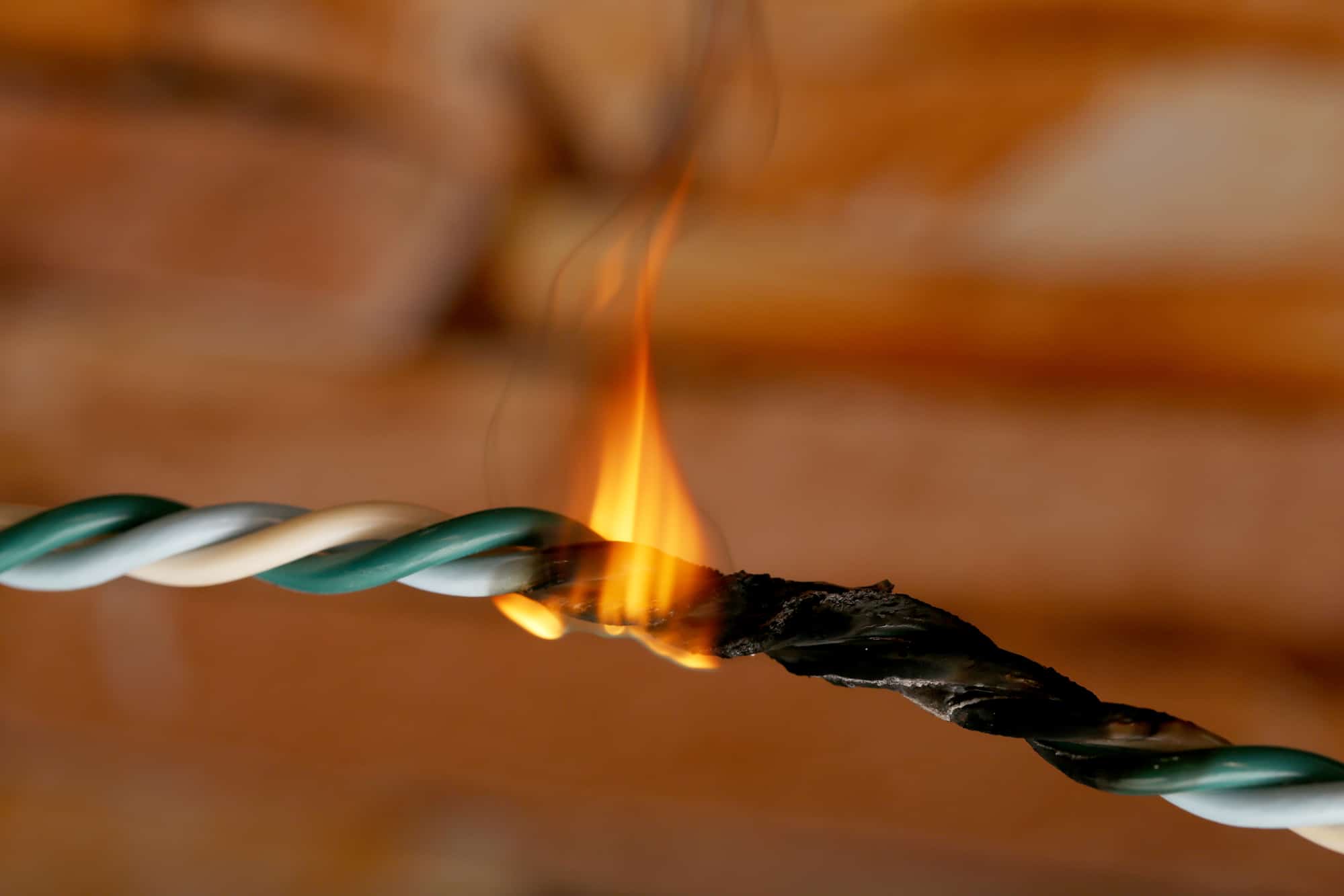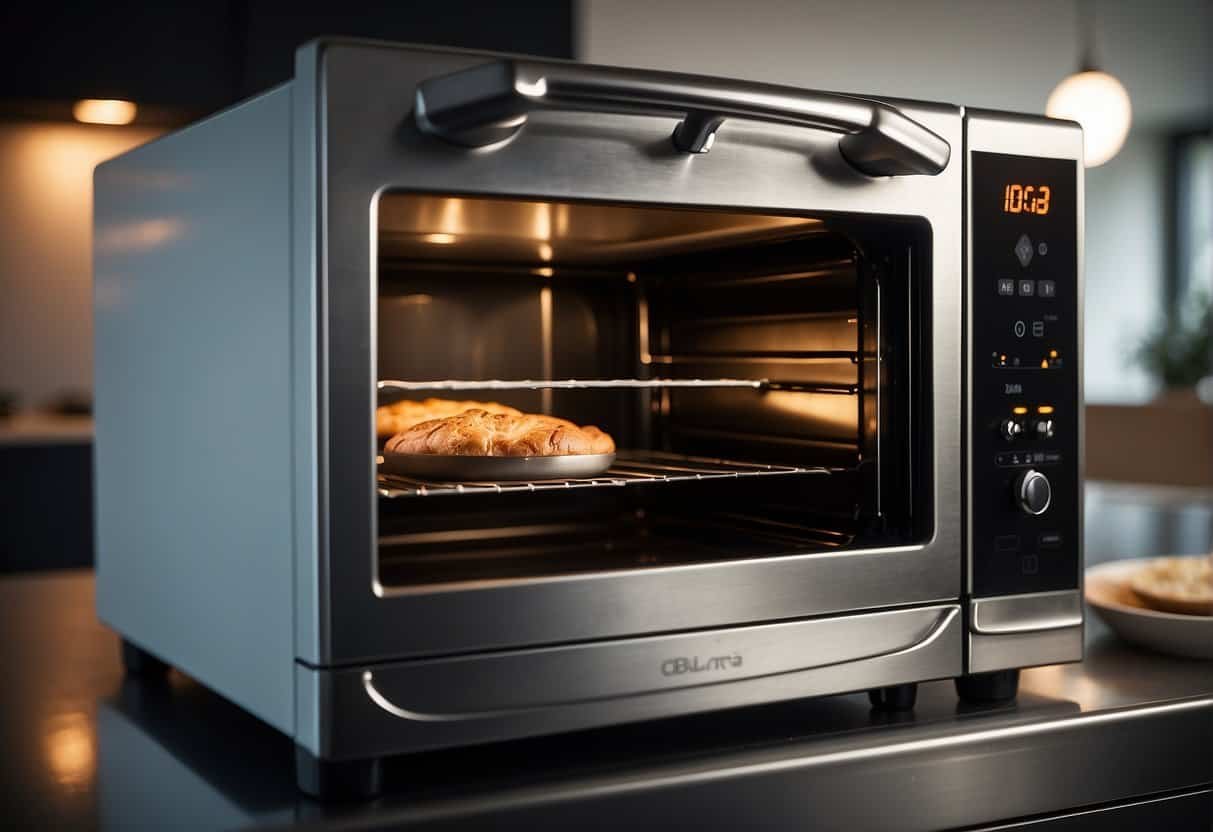Table of Contents
Locating a bad smell in the house is sure to get frustrating if you’ve already checked the obvious places (like your refrigerator, trash cans, and bathrooms). In many cases, the smell might be caused by something more complicated to locate, requiring more time and effort.
To locate a bad smell in the house, you can get help from someone with a better sense of smell, isolate each room, trace the scent after a vacation, get help from your gas company, look for mold, and set rodent traps.
This article will discuss the different ways to locate a bad smell in the house in greater detail. It will also discuss if there is such a thing as an odor detector, if a smoke test can detect smells, and if there is someone you can hire to detect bad smells.
1. Get Help From Someone With a Better Sense of Smell
One of the first things to do is get help from someone you think may have a better sense of smell than you. It’s best to choose someone who doesn’t live in your home to avoid nose blindness (which you likely have at this point).
If you’re unaware, nose blindness occurs when you get used to the smells in your environment, which happens to everyone (source: Healthline).
Sometimes, all it takes is a fresh set of nostrils to locate the smell you’ve been trying to find for days or weeks!
If you get someone to help you locate the smell, bring them to each room, ensuring they can smell each place thoroughly. While getting someone with a better sense of smell can help you find the underlying cause, it will only sometimes work. If it doesn’t, consider trying some other tips in this guide.
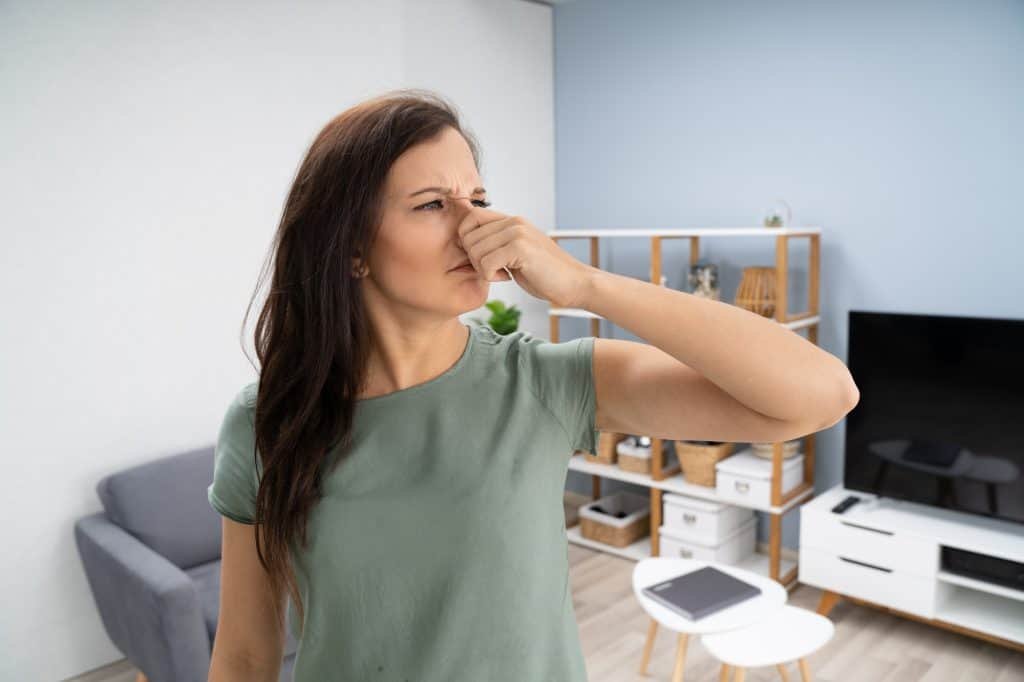
2. Isolate Each Room
Another way to track down the smell in your home is to isolate each room as much as possible. For example, keep the doors of each room closed unless you or someone else needs to walk through them.
That way, you can go into each room and examine the smell to see if you can locate it without the scents in other rooms getting in the way. As well as the doors being closed, it’s best to ensure the windows remain closed.
Keeping the windows closed can be challenging because you likely want to keep them open to eliminate the smell, but this will make it harder to locate the cause of the foul odor.
3. Try Tracking the Smell Down After a Vacation
If you have a vacation planned soon, it might be a good idea to hold off on trying to locate the smell. Instead, wait until you return from your vacation because you won’t be nose-blind anymore, meaning it’ll be easier to notice the foul odor and possibly locate its origin.
As you may be aware, we tend to get used to the smells in our homes, so it’s difficult to notice or trace bad smells. If you go away for a few days or weeks and then come back home, you’ll likely notice the scent more than usual, which can work to your advantage.
Since the smell will be more noticeable to you, it’ll be easier to follow it and find the source. Of course, it’s not a guarantee that you’ll be able to track down the smell after a vacation, but it’ll undoubtedly be more likely!
4. Get Help From Your Gas Company if You Smell Rotten Eggs
Although a foul odor is often not caused by something dangerous or sinister, it can sometimes indicate a problem that needs professional assistance sooner rather than later.
A gas leak can emit a rotten egg smell, so if you smell anything that resembles gone-off eggs, it’s best to call the gas company and have them check the problem (source: Forbes). Even if it isn’t a gas leak, it’s better to be safe than sorry by calling a professional at the first sign of a severe problem.
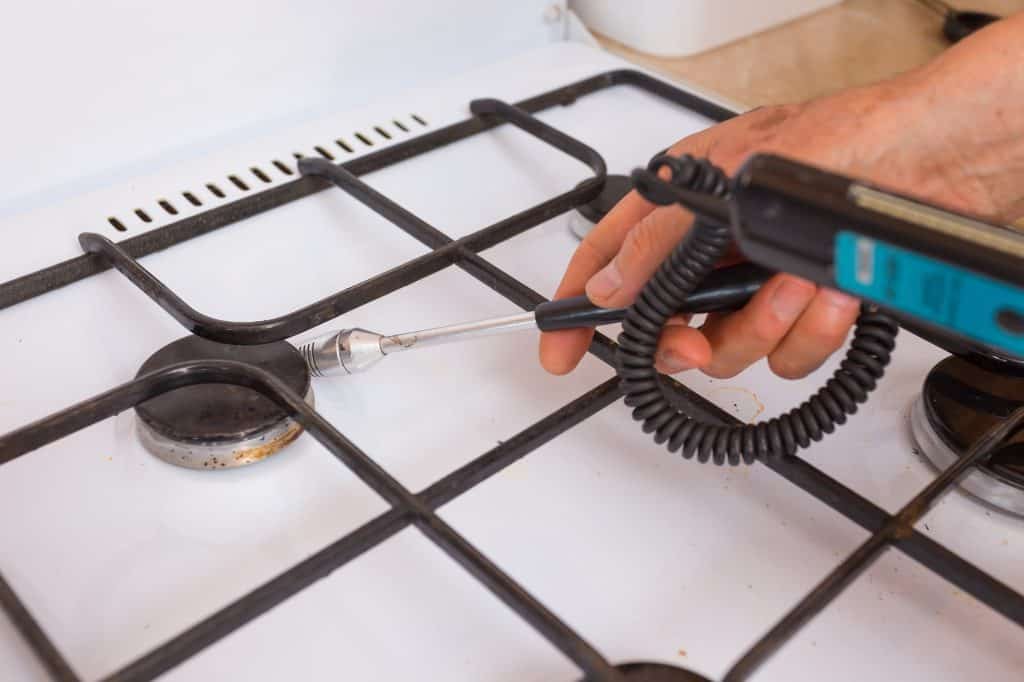
It’s also vital to avoid turning the stove on if you suspect a gas leak and to avoid cigarette smoke indoors until the problem is resolved. To be on the safe side, you and anyone else in the home should leave until help arrives and examines the smell/possible gas leak.
A gas leak can encourage the spread of carbon monoxide throughout the home, potentially killing you and anyone else living in the house (source: Iowa State University).
If you’re smelling rotten eggs in your house at night, you might want to read our article that addresses common causes, too.
5. Look for Mold
Not only does mold look unappealing when it starts to grow on surfaces around the house, but it can also emit a musty or dusty odor. While mold is often easy to detect due to its physical attributes, it might be more challenging to find if it’s hidden behind furniture or a recent paint job.
If you haven’t already, check the walls and floor behind and below furniture or other areas you may have missed. In some cases, the mold might only be present in a tiny section of a wall or other surface, making it harder to find.
Mold is most likely a problem in areas of the home that become damp, like bathrooms and kitchens, but it can be found in any room. If you notice the house often feels damp and are now noticing a musty odor, mold is likely a large part of the problem.
For the best results, check every inch of each room in the home, making sure to move furniture entirely out of the way so that you don’t miss any spots. If you find mold in any area, treat it accordingly and try to improve airflow in the home by opening windows more and using a dehumidifier.
6. Set Rodent Traps
The smells you notice could be from dead animals, which may be inside the walls. It’s generally not viable to check inside the walls to look for dead rodents because it requires breaking into the wall, which can be costly.
When rodents like rats and mice die in the home, they can cause bad smells to develop around the house.
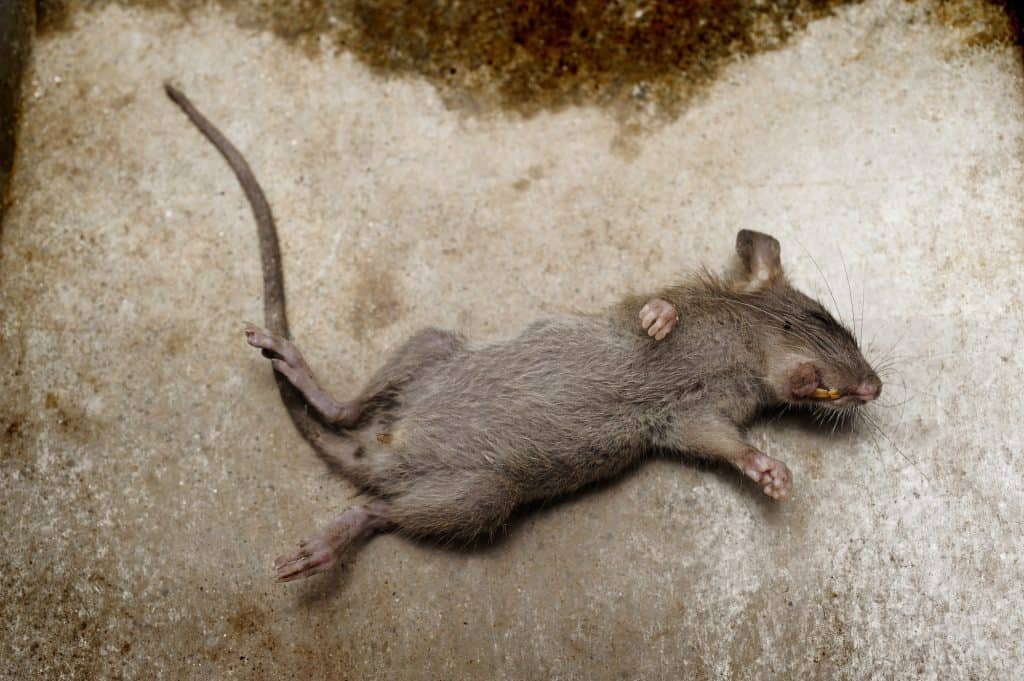
If there is a dead rodent in your house, it also indicates that there are more still alive and nesting somewhere.
Consider placing traps around the home to see if there are any live ones. If any are caught, it might be a good time to call a pest control company because it’s likely these rodents are part of the reason your home smells bad.
On the other hand, you could continue placing traps and find entry points to block future rodents from getting in and eventually dying in the walls.
If there are dead rodents in the walls, the smell should disappear within a few weeks as the body (or bodies) decomposes and no new rodents come along (source: Terminix).
7. Examine New Furniture
You might not even realize it, but new furniture can emit strong chemical odors for many months. Such furniture may include:
- Couches
- Mattresses
- Rugs
If you’ve recently gotten new furniture and only recently noticed a foul odor, the two could be linked.
Try to determine which room(s) the smell is most prominent in. If it happens to be worse in a room with a new mattress, for example, the mattress is likely emitting strong chemical smells that will only go away with time.
It’s also a good idea to let the new furniture air out to allow the smells to entirely escape.

You might suspect new furniture to be the culprit but aren’t 100% sure. In that case, consider getting someone else to smell the furniture up close to see if they notice it. Also, place containers of baking soda around the new furniture, as baking soda can absorb smells over time (source: CS Monitor).
If the smells go away after placing baking soda around the furniture, you’ll know what the problem was.
Although it’s frustrating to wait, there’s not much else to do if new furniture emits a bad smell. With time, the smell should disappear. If it’s been weeks and the scent is still strong, the problem might be related to something else, so you should check out other tips in this guide.
8. Check All the Food in the House
The foul odor could be coming from food that has expired, so be sure to check each cupboard thoroughly. It’s best to empty all cupboards and carefully inspect each item’s expiry date.
In some cases, the food’s expiry date might not have passed yet, but it could still have a foul odor.
Even if you’ve done this already, you might have missed something at the back of a cupboard or refrigerator, which is why it’s essential to empty the contents of every cupboard and closet this time.
You must check all cupboards, including the ones that don’t generally have food. You or someone else might have put food in an incorrect cupboard and forgotten about it, so never assume everything is in the right place.
Whether the food item is expired or not, it could be causing the problem, particularly if the smell worsens as you enter the kitchen or open a particular cupboard.
9. Check Electrical Components Around the House
Many people describe noticing a fishy smell before realizing there’s a problem with some of the electrical components in the house. So, if you notice an unpleasant fishy smell and have already checked the kitchen and trash cans, there’s likely an electricity problem.
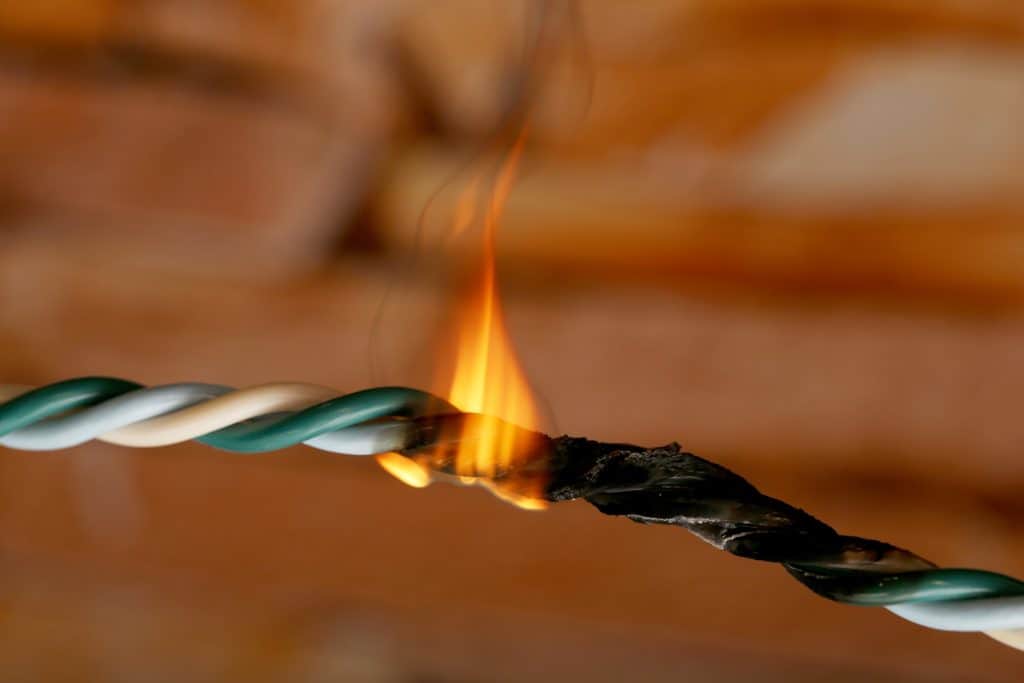
Check things like wires and the fuse box to see if anything is out of the ordinary. If a component feels hot or you notice smoke or wires fraying away anywhere, it’s time to call an electrician immediately, as the circuit could be overheated.
An overheated circuit can increase the risk of an electrical fire, so be sure to act accordingly as soon as you notice a random fishy odor.
If you smell burning rubber in your house, here’s an article on what might cause that.
Is There Such Thing as an Odor or Smell Detector?
There is such a thing as an odor detector, but the devices are generally not for consumer use. Many odor-detecting devices can be used to detect specific chemicals and are typically used by scientists and other field workers.
For example, an olfactometer is a handheld device that can be used by professionals in different industries to detect and examine odors on site (source: National Library of Medicine).
If you’re interested in using a smell detector to locate the odor in your home, you’re likely out of luck because the technology is still evolving. However, consumers may have access to devices that can detect odors in the future.
While odor detectors are not yet widely used in homes, gas leak detectors are used and can help locate a leak.
Can You Detect Smells With a Smoke Test?
You can’t necessarily detect smells with a smoke test, but you can detect the cause of the foul odor with smoke testing. A smoke test can examine different components in the home, for example, a hole in a pipe or a rodent entry point.
If you use a smoke test and determine a crack or hole in a pipe, sewage may leak from it, which can cause a foul odor. So, a smoke test can be a handy way to detect problems in the home that could be causing bad smells.
Is There Someone You Can Call or Consult To Find Bad Smells?
You can consult different people to find bad smells. For example, odor-detection companies can go to your house and examine the plumbing and electrics. You can also consult an actual plumber or electrician, depending on where you think the smell might be coming from.
Many odor detection companies focus on sewage issues, so they won’t be able to assist if the smell is coming from somewhere other than your home’s sewage system.
The best thing to do is pay close attention to the smells to better understand where it’s coming from. From there, you can call the correct professional to help further.
For example, if the smell is bad in the bathroom and nowhere else (and has a general “sewage” smell), hiring an odor detection company that focuses on drains and sewage might be worth it.
Finding a bad smell in the house can be challenging, but you should be able to locate the source in no time if you follow the tips in this guide. Good luck!






